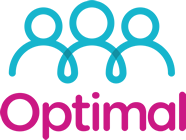Why you should grow your own
I’m not talking about tomatoes here, I’m talking about future leaders.
We have all seen it happen in the past were a new manager is recruited into the business based on their shiny CV and amazing skill set. Sometimes it’s a great fit and the transition is smooth and they are leading the team to success in no time. Other times they just don’t fit the company culture or are able to get on board with the Mission, Vision and Goals. When it goes wrong it can cause team conflicts, lower morale and affect outputs. You may even loose some members of the team.
This is one of the reasons it can be beneficial to implement career development pathways and give internal employees the opportunity to work towards promotion. You might think this would be time consuming and costly to implement but, it can be done quite simply.
All organisations undertake employee reviews, and these are great opportunities to identify your future leaders. To me a leader needs two things, the will and the skill. Ok the skill will usually be a lot more than one thing but that’s where we work with them to develop their existing skill set and teach new skills. As long as they have the will, I believe we can help them with the rest.
In practice what does this look like?
Development opportunities
There are always tasks the manager can delegate and this is where I would start. What tasks does the manager currently perform that could be undertaken by someone else in the team? By delegating these tasks, the manager can work more closely with a team member to teach them how to perform new tasks and assess their capabilities.
Mentoring
Implementing a Mentoring Programme or more simply a buddy system can be one of the best ways to share knowledge within the business. It is also a great way to encourage teamworking, strengthen relationships and boost morale. To do this you would start by identifying which individuals would make great mentors and then provide them with some initial training around the role of a mentor, what the requirements are how to achieve this. You can then start to identify who would benefit from a Mentor and start pairing them up. The Mentors overtime will start to identify those rising stars who have the potential to be future leaders within your business.
Formal Training
Once you have identified your talent pool you can start to implement formal training. There are lots of topics that would benefit all employees:
• Change Management
• Effective Communication
• Influencing and Negotiation
• Problem Solving and Decision Making
• Time and Self Management
• Mentoring
And more specifically for those in a Management role:
• Building Successful Teams
• Coaching Skills
• Performance Management
These are programmes that can be booked externally or why not offer these programmes in house? When individuals undertake training in a group setting it can be very valuable and also create an internal network who can speak to their peers about their own experiences, share ideas and challenges and ask each other for advice.
If you would like to discuss how to implement this in your organisation or any of the programmes listed, please contact our Learning and Development Consultant, Kimberley Fidler, on 07487 512 928.



